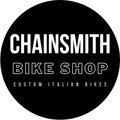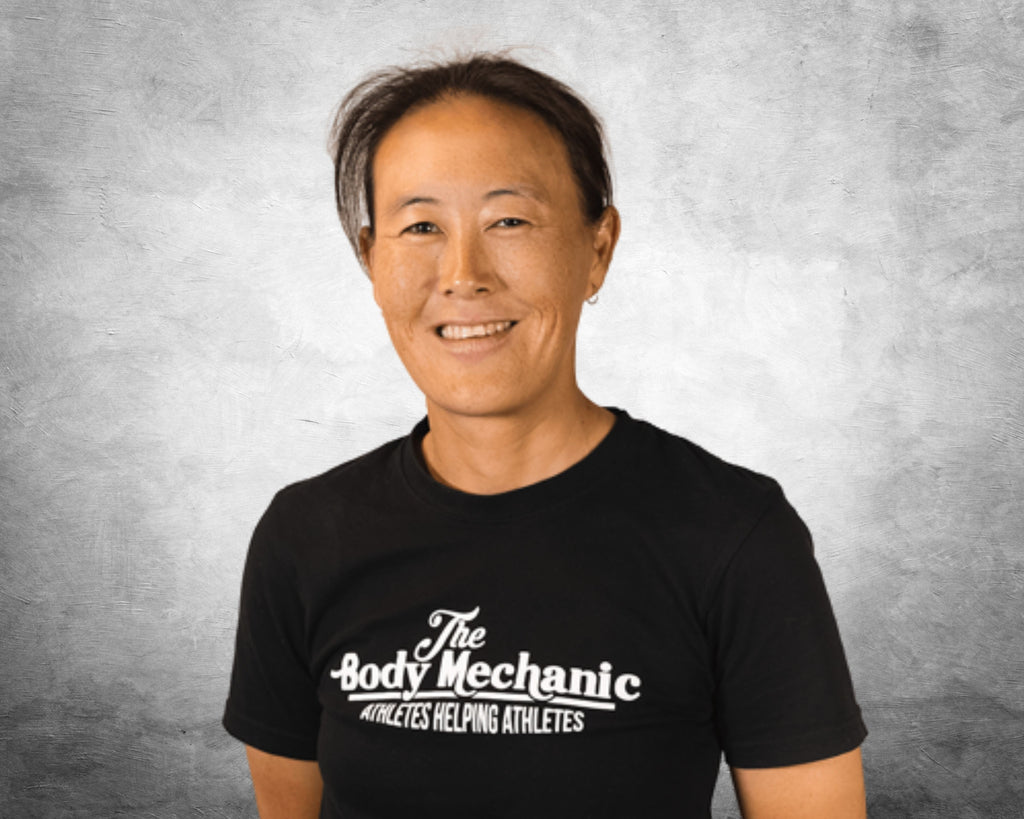Cyclists have an innate fascination with suffering. Social media offers good example. You'll find plenty of images with mass accidents or pain faces of riders climbing tortuous graded mountain passes. Its just as common with amateur riders retelling their levels of suffering sipping on a post ride coffee. Riders who’ve just started their cycling journey will often bask in the suffering. But if you’ve a few years under your riding belt, you’ll know long term suffering is unnecessary, even annoying, or could dangerously lead to injury. We're exploring this path, and looking to dispel the myth that suffering and cycling must go hand in hand.
Alongside our recommendations on how to relieve and prevent cycling pain, we’re exploring physiotherapy as a key to unlocking athletic potential specifically for cyclists. In our last interview with ironman and physiotherapist Kenny Merlevede, we looked at the holistic approach to overcome typical and atypical riding issues. Kenny has specialist skills using dry needling that, in our experience, is an incredibly effective art to pain relief. In Part Two, we interview Nicole Oh. A formidable force, Nicole uses years of work with cyclists alongside a personal bike racing background to diagnose and treat bike riders.
Physiotherapists often see patients when the pain scale tips into injury. Other patients have repetitive strains and aches that cause discomfort. Meanwhile, there’s a third group that foresee the benefits of physiotherapy as a tool to improve mobility, flexibility and strength. Nicole talks about these points. But Nicole also discusses what contributes to the making of a solid physiotherapist when it comes to helping cyclists.
We don’t hesitate to recommend you visiting The body Mechanic. If you’ve aspirations to race, you already race or wish to better your comfort and performance, Nicole’s experience with cyclists both professional and amateur is extensive. We’re really please to share this interview with our favoured North Sydney Physio, Nicole Oh.
Introducing Nicole Oh
Alison McGregor : There aren't many women working in the cycling industry, or with cyclists. It was just a matter of time we met. And while we've known each other quite some time now, there's so many fantastic things about your practice and career I'd like to uncover because I know there's a mass of cyclists out there that could benefit from your clinical experience. Firstly, what started your journey to becoming a physio?
Nicole Oh : When I was in high school, I liked sport, science and problem solving, so I chose to do Physiotherapy at Uni. It’s when you actually start working that your journey through the profession begins.
I have always been interested in the Musculoskeletal side of Physio (there are many other areas of Physio that not many people know about!), starting in Orthopaedics, then Private Practice, then more an endurance sports focus, and finally specialising in cycling for about the last 10 years.
Alison McGregor : The clinic you find yourself in today, The Body Mechanic in Milsons Point North Sydney has a fantastic reputation. Both David and Ben visit the practice themselves. Its such an athletically focused practice, I imagine your clients are quite varied. What do you love about joining the team at The Body Mechanic?
Nicole Oh : I couldn’t believe how lucky I was that this job came up when it did. I had just come back from a couple months of backpacking in South America after living the best part of 15 years in the UK, when I saw it advertised. There are very few clinics in Sydney that specialise in cycling and bike fitting (as well as running) - it was pretty much my perfect job! It’s a very small niche clinic - just 3 Physio's and an admin assistance/mechanic - so a nice relaxed place to work. The boss also gives me a lot of flexibility (which makes it easier to train and race) and scope to develop services as I see fit.
Alison McGregor : Many of our readers are affected by the latest lockdown, both mentally and financially. On a good note, that means less cars to compete with when riding. But for many their place of work and hours were altered. You guys must have also been affected, at least initially. How has the Body Mechanic approached clinical treatment during lockdown?
"If this lockdown is going to go on for weeks (as it appears it will), then they need to get their injuries sorted or they won’t be able to exercise, which will make them even more crazy during lockdown!"
Nicole Oh : We have remained open as an essential service, and besides taking more precautions, are operating as usual, but understandably have been quieter than normal. We do offer online/virtual consultations although they are not that popular. Many of our clients benefit from hands-on treatment since, like a lot of athletes, they often run themselves into the ground! I think a similar pattern is developing as with the first lockdown - initially people cancel or postpone their appointments thinking they can wait a couple of weeks, but realise that if this lockdown is going to go on for weeks (as it appears it will), then they need to get their injuries sorted or they won’t be able to exercise, which will make them even more crazy during lockdown!

Alison McGregor : It was difficult to determine which businesses were deemed essential. But the other issues we face is that cyclists love research and when it comes to pain, they tend to self diagnose or "ask a friend". We see results in the workshop of bikes altered, where aches and pains are "diagnosed" with no experience. As an accomplished athlete yourself, how do you use your racing experience to better diagnose clients?
Nicole Oh : I think the most important factor in effectively treating cyclists and cycling injuries as a Physiotherapist is knowledge of the sport. I don’t think you necessarily have to be a racing cyclist to have this knowledge, although I guess to be a good racer you have to put in a large number of hours on the bike and at a fairly high intensity to get to that level. You also see a lot of injuries first-hand, whether it’s to yourself, your friends, your club/team mates, or your competitors!
"These days I still get excited when clients email me after a bike fit or treatment and say they have improved their PBs significantly. Who doesn’t want more power?!"
Alison McGregor : It's hard to watch a rider suffering on the bike. Can you recall a client that overcame challenges due specifically to your physio treatment?
Nicole Oh : I have literally seen thousands of cyclists over the years, and my memory is not what it used to be! I recall a couple of satisfying cases … I had a racing cyclist who had symptoms of External Iliac Artery Endofibrosis for over a year and had been to multiple other Physios, and I was able to pick it up and refer him for appropriate intervention straight away. It’s a condition pretty specific to cycling, and a lot of Physio’s would probably have never heard of it let alone seen it.
Another case I recall is a middle-aged recreational cyclist with a nasty disc prolapse with nerve route compression, who was able to get back to road riding and climbing mountains in 6 months. He was very compliant with his rehab program and a lovely man, which is probably why I remember him! He is now living the good life in Lake Como in Italy. These days I still get excited when clients email me after a bike fit or treatment and say they have improved their PBs significantly. Who doesn’t want more power?!

Alison McGregor : Love that. Especially in a world that's often quick to criticise or after a quick fix. Positive feedback helps every business.
I often hear clients talk about pain as they believe it's just a part of being a cyclist. I imagine you see many cyclist down the track when pain manifests into injury. Is there physio treatment, like strength and conditioning or massage that can prevent injury in the first place?
Nicole Oh : It is true that cycling can be a painful sport, but not all pain is harmful, and in fact some forms of pain are necessary to improve your performance.
The trick is to be able to distinguish between injury pain, and training/adaptation pain, and know when you should back off and/or seek professional help and advice.
The vast majority of injuries I see are due to some form of overload or overuse, so the number one strategy to prevent injury would be to increase your load gradually and monitor your bodies responses to load being put on it. Hence one of the most important parts of Physio treatment is education, advice and reassurance!
Of course strength and conditioning, massage/foam rolling/stretching can reduce your chances of overload by increasing your bodies capacity to take load and keep your tissues in a state where they can absorb load, and hence are often an important part in preventing injury, but this can still go wrong if you overload your body. I also highly rate sleep in preventing injury, but that’s a whole other topic!

Alison McGregor : There are so many lessons learnt along your years of achievements in both career and athletic pursuits. What's the biggest accomplishment in your life?
Nicole Oh : I’ve never been one for big goals or achievements, I just go through life doing what I love. But I guess if I was to name an accomplishment it would be creating and running a Women’s racing team in the UK for 7 years called Les Filles Racing Team. We were included in two UCI races back in the day! This Team had a reputation for having fun whilst still competing at a high level, and getting results over some of the more “serious” women’s teams. It was hard work at times, but very rewarding, and I learnt a lot along the way.
Alison McGregor : As a competitive cyclist yourself, who inspires you athletically?
Nicole Oh : There are a lot of amazing sports men and women out there, in cycling and other sports, but I tend not to hero worship professional sports people or their achievements. After all, it is their job. Instead, my biggest inspiration is probably my friend and old team mate Jayne Paine.
For those of you who know me, you have probably heard me talking about my crazy cycling friend Paino, who truly is one of a kind. She has 3 Masters world titles and a world record, too many National titles to count, and was willing to have a crack at National Series races a few years ago despite being the wrong side of 50. Being 10 year older than I am, I think that if she can still be racing and winning world titles, then there’s no reason I can’t as well. And she has never been known to refuse an alcoholic beverage, so has a good life balance as well!
Thanks to Nicole Oh. You can make a book a physiotherapy consult with Nicole at Milson Point, The bike Mechanic Website here






